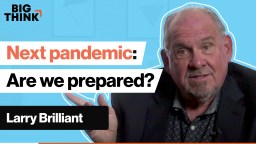medical research
A new study on rats suggests that using marijuana as an adolescent “reprograms the initial behavioral, molecular, and epigenetic response to cocaine.”
A recent clinical trial in Brazil highlights the dangers of two potential COVID-19 treatments: chloroquine and hydroxychloroquine.
The smart toilet can analyze urine and stool samples for disease markers and can even recognize an individual user’s “analprint”.
Chemical engineers have developed a way to protect transplanted drug-producing cells from immune system rejection.
Research supports wearing surgical face masks to slow the spread of the deadly coronavirus.
Creators of the popular protein-folding game, Foldit, are seeking help to design a treatment for COVID-19.
Understanding the math behind social distancing.
Coke, meth, ecstasy, amphetamines: each drug has a different ‘capital’
Medical researchers put a ring on it to learn more about the onset of COVID-19.
A new study shows the benefits of calorie restriction. Never has such advice been more needed.
Our remarkable olfactory senses are modeled in a new research chip.
A new drug derived from scorpion venom reversed developmental damage in mice exposed to alcohol during pregnancy.
It’s not just an old superstition — it’s your stressed-out brain.
Research from Denmark finds that mindfulness and music help sustain attention.
The Alzheimer’s Association says its new analysis and surveys “should sound an alarm regarding the future of dementia care in America.”
Can a real pandemic (such as COVID-19) turn into mass hysteria?
Unique research out of Switzerland says be kind, just not too kind.
A drug developed to combat Alzheimer’s Disease can trigger regeneration of tooth dentin.
Two types of thinking have a time-sharing deal going on in your brain.
The National Institutes of Health hopes synthetic biology can engineer vaccines that outperform nature.
About 97.5 percent of people who develop symptoms will do so within 11.5 days, according to the new study.
Once again, sugar-rich processed foods are shown to increase the likelihood of anxiety.
Here’s what scientists know about how the virus spreads, and how to avoid contracting it.
A deep-learning model identifies a powerful new drug that can kill some antibiotic-resistant bacteria.
Budget cuts to pandemic preparedness put us all at risk.
▸
4 min
—
with
Increasing numbers of seniors need help with basic tasks. It doesn’t have to be that way.
A recent study on monkeys found that stimulating a certain part of the forebrain wakes monkeys from anesthesia.
Add some color to the internal structures and you’ve got some eye-popping imagery.
The White House is reportedly considering an executive order that would open up public access to scientific research.
Scientists figured out how a certain treatment for skin cancer gives some patients a visual “superpower.”





























